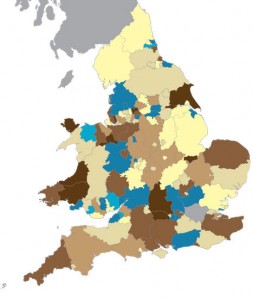UPDATE (29 Feb 2012): Channel 4’s FactCheck have followed this up with a response from the DWP:
“A spokesman told FactCheck: “The changes to the website were just part of a regular update. We regularly revise documents for clarity purposes.”
“When pushed on whether that meant that the instruction to mandate participants is no longer government policy, she wasn’t able to provide any more “clarity” other than to say: “I’m not saying the advice is wrong.”
“That’s a bit of a problem, because if the advice ISN’T wrong, but HAS been taken down, doesn’t that mean that Work Programme providers are now in danger of breaking the rules on the National Minimum Wage Regulations, as the government took great pains to flag up originally in the missing paragraph?
“Confusion reigns, and despite repeated phone calls and several days to think about it, DWP has declined to clarify the situation.
“The spokesman did tell us that the apparently damning FoI answer had been taken down because it contained an error (“one of the names of the companies was wrong”).
“And the timing of all this was pure coincidence, the spokesman insisted.
“So a document emphasising the “mandatory” nature of Work Programme work experience happened to disappear from the department’s website just as the controversy over whether other schemes were mandatory was raging in the headlines.
“Or in any event, that’s DWP’s story and they’re sticking to it.”
Original post below

Anton, a commenter on The Void blog, has pointed out that government documents on the work experience programme have been altered recently to remove the instruction “you must mandate participants to this activity”.
A Google cache of the documents still contains the phrase (on page 4), whereas the version currently on the DWP site (PDF) does not. (Just in case that cache disappears, here’s a copy)
It’s a bit late in the evening to get a response from the DWP on this, but if anyone wants to ring on Monday morning, let us know.
UPDATE: Mary Hamilton looks into the documents’ metadata and tells us the original version was “created/modified 17/08/2011. Changed version created/modified 24/02/2012.”


